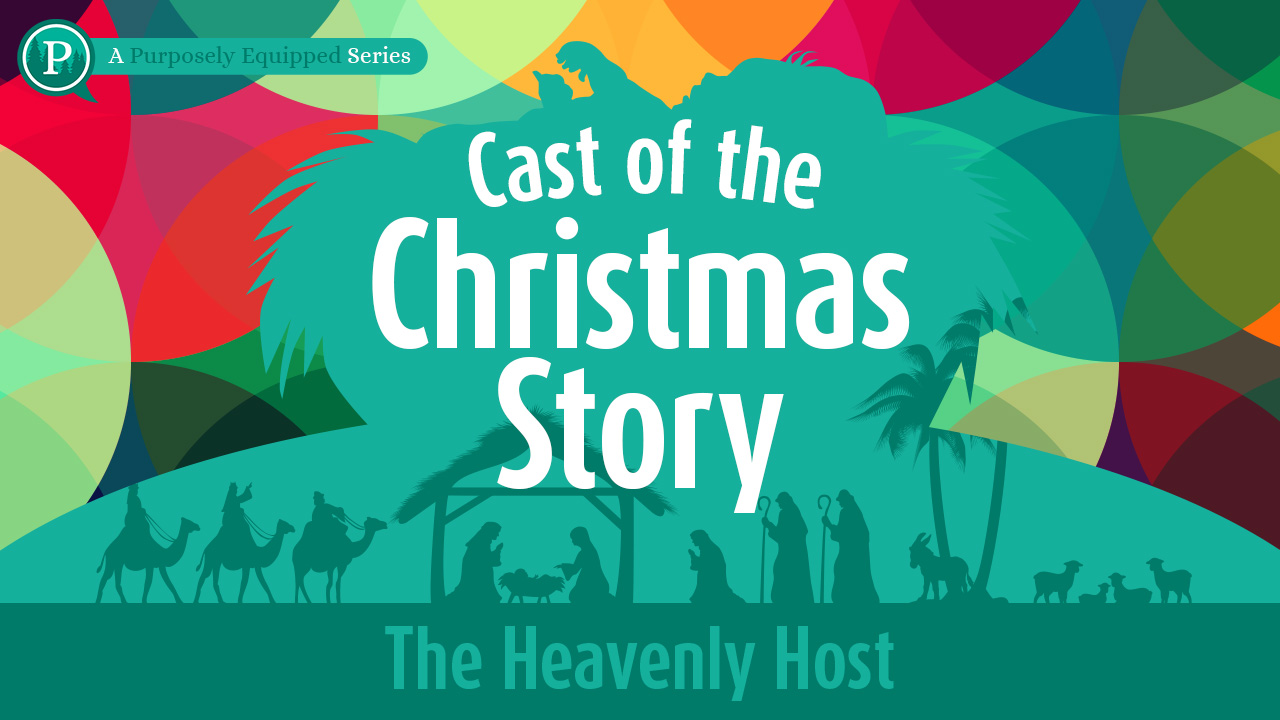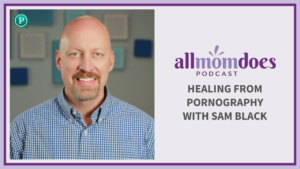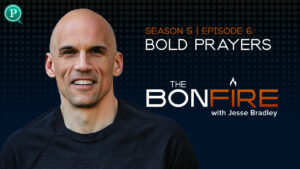You can read the Christmas story over and over again but sometimes certain things will stand out. For Evan Westerfield, The Heavenly Host, stood out to him. Evan is from The Grove Church in Marysville and joins Mark to talk more about the Heavenly Host, what their presence means, and where else we see the Glory of the Lord in the Bible. What does this mean to us today? Don’t miss the simple way we can all experience Christmas this year.
Special thanks to World Concern Global Gift Guide, for bringing us the Cast of the Christmas Story!
Show Notes:
Transcription:
Purposely. Your life, God’s purpose. Listen at OnPurposely.com.
Mark Holland:
The Cast of the Christmas Story series is sponsored by World Concern and the Global Gift Guide. Find out more at GlobalGiftGuide.org.
Speaker 1:
The Cast of the Christmas Story.
Mark Holland:
And another pastor joining us once again for stories of the Cast of the Christmas Story, another original story in the Bible. I love that about the Bible. All these stories that we base all of our current stories on actually have their beginnings in the Bible and the real stories of real things that happened. And of course, the Christmas story, one of the best in the Bible. And expounding on that this week, another pastor with us, his name is Evan Westerfield, he’s the creative lead at the Grove Church in Marysville. Hi, Pastor Evan.
Evan Westerfield:
How’s it going?
Mark Holland:
Good to see you. So you do this stuff a lot, you do a lot of podcasting and things?
Evan Westerfield:
Yeah, so it’s kind of my job to figure out how can we best use technology to further the kingdom of God here on earth. So we do a weekly podcast kind of with our church, going along with the Bible reading plan, which has been really helpful. And then obviously, Covid kind of forced us to figure out live-streaming.
Mark Holland:
Well, everybody wanted to stream then.
Evan Westerfield:
Right. Exactly.
Mark Holland:
But people have pretty much come back to church.
Evan Westerfield:
Yeah. Right now, we’ve seen most people have been coming back. And then the online that we provide, it’s more of a hybrid where people are able to do both. So days where you’re sick, now you don’t have to miss church. You can still feel like you’re a part of it.
Mark Holland:
Yeah. So you provide that teaching, those Bible studies, for people online?
Evan Westerfield:
Yeah, that’s the idea. So as much as possible, especially for… Every church has a community of shut-ins and people who aren’t able to leave their homes. So you want people, as much as possible, to feel like they’re still a part of the church, even when they can’t physically be there.
Mark Holland:
Sure. Well, tell us more about the Grove Church in Marysville, kind of a larger congregation for Marysville. A thousand people, you said, about?
Evan Westerfield:
Yeah, give or take. So we’ve been there since 1932.
Mark Holland:
Wow, a long time.
Evan Westerfield:
Yep, it’s been a long time. It was formerly Marysville First Assembly. Now, the Grove Church. And then I’ve been there for about 10 years and we love it, or I love it.
Mark Holland:
Are you married? Have a family?
Evan Westerfield:
I am married, yeah. My wife is Ashley, and we just had our first child. His name is Joel, and he was born on June 2nd.
Mark Holland:
Congratulations.
Evan Westerfield:
Thank you, yeah.
Mark Holland:
Doing your own story there.
Evan Westerfield:
Yeah, this’ll be his first Christmas. So he won’t remember anything, but it’ll still be fun.
Mark Holland:
Okay. Well, the Cast of the Christmas Story, lots of players in this series that we’re looking at, specific parts of the Christmas story. You’re the first person we’ve recorded so far for this, and you jumped right in on the Heavenly Host. Why is this particular part of the Christmas story so meaningful to you?
Evan Westerfield:
Like I said, I do a podcast with another pastor. We read through the Bible. And one of the things I love about that is just things stand out to you in a way that they never have before. You can read the same story. And if there’s a story in the Bible that we all know by the back of our hands, it’s the Christmas story because we hear it all the time. And so I remember reading through the Book of Ezekiel, and then kind of realizing how those things connected. And in the moment of the Heavenly Host, I think that one of the mistakes that we can make when we read through the Bible is we don’t take a moment to pause and really put ourselves into the lives of the people that we’re reading about because we know the ending.
And after a certain amount of time, the stories almost become less powerful because, in our minds, we’ve already skipped to the end. So I’ve always imagined… Or not always, but I started wanting to imagine, “What would it have been like for those shepherds to be in the middle of the night and all of a sudden the Heavenly Host appears, the glory of God surrounds them, and you hear this incredibly powerful proclamation?” And so yeah, there’s just kind of a journey of what this would’ve meant for them, kind of the connecting points of the Old Testament, and I think it shows… Because if you don’t know any of the context, the idea…
Mark Holland:
Well, tell us. Give us the context.
Evan Westerfield:
Okay, so…
Mark Holland:
So what is the Heavenly Host proclaiming, “Glory to God…”, as we hear from the Handel Messiah piece?
Evan Westerfield:
Right. So in the Book of Luke, we see it says, starting in verse eight, “And in the same region there were shepherds out in the field keeping watch over the flock by night. And an angel of the Lord appeared to them, and the glory of the Lord shone around them, and they were filled with great fear. And the angel said to them, ‘Fear not. For behold, I bring you good news of great joy that will be for all of the people. For unto you is born this day, in the City of David, a savior who is Christ the Lord. And this will be a sign for you. You will find the baby wrapped in swaddling cloths and lying in a manger.'”
“And suddenly, there was, with the angel, a multitude of the Heavenly Host praising God and saying, ‘Glory to God in the highest. And on earth, peace among those with whom he is pleased.'” So already, that’s an incredible moment. You don’t have to know anything else about what’s happening in the Bible, and just imagining the Heavenly Host appearing above you, the glory of God shining around him, and that proclamation is incredible. But when I was reading through the Book of Ezekiel, there’s one passage… And Ezekiel’s a really depressing book.
Mark Holland:
Yeah, yeah. Heavy.
Evan Westerfield:
Yeah, the prophets kind of get progressively more and more depressing as you move on through the Old Testament. Because it starts off as God saying, “Hey, repent, and this bad thing is not going to happen to you.” And then eventually, you get to Jeremiah and you get to Ezekiel, and there’s no longer, “Repent, and this won’t happen to you.” It’s, “Jerusalem is going to be destroyed. You’re going into exile. Repent, and you can come back.” So the whole message of it has changed. And so Ezekiel… I mean, the most heart-wrenching part of Ezekiel is Ezekiel’s wife dies, and God commands him, “Don’t mourn.” Because what he’s trying to communicate to his people there… And it’s almost impossible to over exaggerate what a traumatic thing it would’ve been for an ancient Jew to lose Jerusalem, because it was the City of God.
And you even see, throughout the prophets, one of the things they constantly have to attack is this idea that, “Hey, just because you’re God’s chosen people, that doesn’t mean you can break covenant. That doesn’t mean that you can go against what God is saying.” Because there was this belief among the people of Judah, and specifically the people of Jerusalem, that, “Hey, no matter what happens, God will never let us fall.” And so when God tells Ezekiel, “You cannot mourn,” it’s to show that this incredibly traumatic thing happened to Ezekiel and this incredibly traumatic thing is happening to Israel, and you’re not allowed to mourn for it because this is the just punishment for what has happened. Not in the case of Ezekiel, but again, he’s acting out kind of a divine metaphor in that moment. But one of the most terrifying moments, I think, in Ezekiel, is one of his first visions he’s taken to Jerusalem.
And so at this point, Ezekiel is already living in exile. So he’s about, I think, like 60 miles southeast of Babylon proper. And so he’s with a community of Jews who have already been taken out, and he sees Jerusalem and he’s given a tour of the temple, and then he sees the glory of the Lord with four cherubim. And eventually, as they go through the temple, he leaves the temple and then he sees the glory of the Lord depart and it leaves Jerusalem. And what this is communicating, what God’s communicating in this passage, at least I think how I read it, is that his protection is leaving Jerusalem as well. And if you look at ancient maps, one of my favorite maps to look at is… I’m a nerd, so that’s a funny sentence, “My favorite maps to look at…” But there’s a map of the Assyrian Empire under the height of Sennacherib, who is kind of the greatest Assyrian king. And…
Mark Holland:
You are a Bible nerd.
Evan Westerfield:
I love this stuff.
Mark Holland:
Okay.
Evan Westerfield:
But if you look at this map, it’s completely covered in, let’s say, green is the color of the Assyrian Empire, and then there’s one circle. And that’s Judah, and that’s the only country that’s holding out. And you see all throughout these incredible empires that Judah is surrounded by God continuously protects his people. And if you open up a history book, Judah is incredibly insignificant as a nation. It’s just a small nation on the coast surrounded by greater empires. And yet…
Mark Holland:
Some things never change.
Evan Westerfield:
Yeah, that’s true. And yet God continuously protects his people, he protects his city. And so now when Ezekiel sees the glory of the Lord leaving, it would’ve communicated that, “Oh no, my nation is in trouble. My city’s in trouble.”
Mark Holland:
Yeah.
Evan Westerfield:
And I always imagine, “What would’ve Ezekiel felt in that vision?” Because the glory of the Lord is presented as a mighty rushing wind, as it so often is in the Old Testament. And so all of a sudden he sees the glory of the Lord depart, and I just can’t even imagine the silence that you would fear, that you would feel after that vision. And then I wonder if Ezekiel, could he concentrate enough and all of a sudden hear the armies of Babylon outside of the city, so all of a sudden silence gives way to the coming destruction. It would’ve been an incredibly scary moment not only for Ezekiel to experience, but also for him to begin to tell his fellow Jews about.
Mark Holland:
They probably didn’t want to hear that.
Evan Westerfield:
No, yeah. Well, isn’t that the case with all the prophets? They’re just telling people things that they don’t want to hear, but it’s what God needs them to tell them. So if we move forward in Ezekiel, the next time we see the glory of the Lord is it inhabits the temple when it’s built. And it’s kind of interesting, because the temple that’s built later in Ezekiel is more grand than the actual second temple. So the first temple is Solomon’s temple that’s destroyed when Nebuchadnezzar destroys Jerusalem, but the second temple is rebuilt much later. And that’s not the temple we see described in Ezekiel. The temple that we see described in Ezekiel is this very grand building. And when it’s dedicated, we see the glory of the Lord fill the temple.
And it echoes what happened in the book of Kings, when Solomon builds his temple and he prays and he dedicates it, the glory of the Lord fills the temple and it’s so overwhelming. So again, the glory of the Lord takes the form of smoke. And the priests are so overwhelmed they have to run out of the temple because they’re coughing, they’re choking, and they can’t do their priestly duties because the glory of the Lord is so heavy in that place. And so I think it also helps make sense of… There’s a story in the book of Ezra, and Ezra tells the story of the Jews coming back from the exile. So the first return is under the Governor Zerubbabel, who is a descendant of the kings of Judah. And one of the things they begin to do is they rebuild the temple, and because this is the way that God wants to be worshiped. And so they build the foundations and they dedicate it.
And we’re told in Ezra, and it’s this really interesting moment, that half the people rejoice and then half the people weep. And it always feels kind of odd because… And it says, “They weep for they remember the glory of the old temple.” And so I think there’s a couple of things going on here. I think, number one, they’re remembering what Israel used to be. And they remember the majesty of the building itself, of the temple, and how even looking at the foundations of this new temple, that it’s not going to be the same. But I think another thing that might be entering into the heads of the Israelites who are watching this is the glory of the Lord does not seem to be present when this is happening. And for the rest of the Old Testament, we do not see the glory of the Lord again. We see in that vision that Ezekiel has, but we don’t see the glory Lord actually physically in Jerusalem. And so what connected it for me was…
Mark Holland:
What’s the connection here to that, and then what the shepherds see out in the field? The shepherds weren’t in the temple.
Evan Westerfield:
No, they weren’t.
Mark Holland:
And they didn’t come, and the glory of the host doesn’t come to the temple this time.
Evan Westerfield:
Right. So when we’re reading through that passage, the verse that stuck out to me, it says, “And an angel of the Lord appeared to them and the glory of the Lord shone around them.” And that’s the first time that anyone has seen, at least that we have recorded, that anyone has seen the glory of the Lord since then. And so the shepherds who are outside of Jerusalem, they’re by Bethlehem, which is not super far away, they would’ve recognized the incredible power of this moment. Even if they weren’t very well versed in the Old Testament, if they weren’t very well versed in scripture, they would’ve realized that the glory of the Lord appearing to them is an incredibly powerful thing that is happening.
And what does it mean, right? So when Solomon dedicates the temple, one of the things that he prays about is, “Will God now dwell with us on earth?” And that’s what the temple symbolizes. It symbolizes… And the tabernacle before it, it symbolizes God’s presence traveling with his people, being with his people. And so now we see the greater temple. Jesus is the greater temple, where the temple is God’s presence dwelling among Israel. Jesus is God incarnate, dwelling among his people. So the answer to Solomon’s question is a resounding, “Yes. God will dwell with his people.”
Mark Holland:
God with us.
Evan Westerfield:
Absolutely, yeah. Emmanuel. And then when the glory of the Lord shines around the angels, that is what they’re declaring. They’re declaring that, “God is here, the Christ is born.” And so I wonder with that second prophecy in Ezekiel, or that second vision of the temple… Because there’s a few ways you can interpret it. So this is a very open-handed thing I’m about to say. You could convince me that it’s wrong, but I wonder if what’s going on here is… Because that temple’s not built. So it’s either that Ezekiel is describing the temple that Zerubbabel should have built and they were disobedient, or Ezekiel is describing another temple that has yet to be built, but will one day be built. Or is it that God is trying to communicate something to his people in language that they understand?
Because again, if the temple has always been a symbol of God dwelling with his people, then the glory of the Lord filling that magnificent temple, it would be showing the people that there will be a point where, “I dwell with you again in a way that is more grand than anything you’ve ever seen before. And at that moment, my glory will return.” So is that passage in Ezekiel talking about Christ and how the way that Jesus dwelt with us is more magnificent than anything we could have ever seen before? That it’s more magnificent than the tabernacle, it’s more magnificent than the temple. And the glory of the Lord returning to Israel at that moment, is it communicating that the greater temple has arrived, communicating that the presence of God is going to dwell among his people in a way that it never has before?
Mark Holland:
The Heavenly Host proclaiming, “Glory to God.” I’d never have connected those things. Thank you for expounding on that idea, like only you can as a Bible nerd, as the creative lead at the Grove Church in Marysville. We’ve been here in the heart of Pastor Evan Westerfield, the creative lead. Technically, are you a pastor?
Evan Westerfield:
Not by title, no.
Mark Holland:
Okay. Evan Westerfield of the Grove Church in Marysville, just a wonderful idea behind the Heavenly Host. And if people want to connect this then, who are listening, what does that mean for us? Just to bask in the truth of this, that Jesus is the fulfillment of this glory? Or what’s the one thing you want people to take away from this story?
Evan Westerfield:
I think it’s kind of what I said at the very top, where we can get so distracted by the trappings of Christmas that we don’t take a moment to actually think about what it means. I remember, there was a few years ago… My wife makes fun of me because I cry at really random times. I’m not like a crier, but I just randomly will get in the mood, I suppose. But we were driving around watching Christmas lights, like we like to do every year, and “Oh, Come, All Ye Faithful” came on the radio. And I was just overcome with the emotion of imagining what that would’ve been like, again, to be the shepherds and to know that Christ was born, and what it would be like to drop everything and run into Bethlehem and keep knocking on doors until you find the right place where the family actually is. And so I think the number one takeaway for Christmas is don’t let the good things get in the way of the ultimate thing.
Spending time with family is great. I love giving gifts, I love receiving gifts. It’s an awesome time. I love just the whole spirit of Christmas. I love that it’s a thing that I can enjoy even with non-Christians, even with people who don’t believe any part of the Christmas story. It’s still a time of year that brings us together and we can enjoy. Those are all beautiful things. But the ultimate thing is that the creator, God, of the universe, loves us so much that he became a man and that he died for our sins and he rose again. And that because of his death and resurrection, we can find our purpose in him, we find our forgiveness in him, and that gives our lives meaning. And Christmas, really, it’s the story of the beginning of that plan coming to fruition. And so when we celebrate Christmas, I think the number one thing we have to remember is what a testimony to the love of God, that he would become man, and that he would dwell with us in a way that we would’ve never been able to imagine before.
Mark Holland:
The Cast of the Christmas Story series is sponsored by World Concern. You can give a gift with a lifetime of impact. Your gift will meet the critical need of a child or family living in poverty. You can give a goat or one of forty-three other life-changing gifts today through the World Concern Global Gift Guide. Give life-changing gifts that work together to transform the lives of moms, dads, and children in the world’s poorest places. You can even select a meaningful gift in honor of a friend or loved one. Each gift transforms the life of someone in poverty. Go to GlobalGiftGuide.org. Again, that’s GlobalGiftGuide.org.
Speaker 1:
Thank you so much for joining us for the Cast of the Christmas Story, a series on Purposely Equipped. We’d love for you to take a moment and let us know what you think of this series by leaving us a review. For more podcasts to grow your faith, we invite you to visit OnPurposely.com. Until next time.








